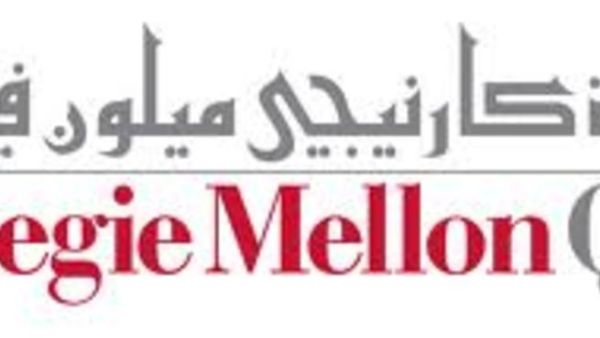Carnegie Mellon Qatar focuses on attracting women into science and technology

Fifty-two percent of Carnegie Mellon Qatar’s 335 undergraduates are female. With Qataris comprising approximately 40 percent of the recent incoming class, the university is well positioned to help Qatar’s female population nurture their interests in science and technology.
Over the weekend, female high school students and undergraduates from universities and high schools in Qatar gathered at Carnegie Mellon for the “Opportunities for Undergraduate Research in Computer Science” (OurCS) Qatar 2012 conference. The participants learned about the important role women can play in developing Qatar’s knowledge-based economy by contributing to research efforts in computer science and related fields. The program featured prominent female computer scientists, including keynote speaker Sihem Amer-Yahia, principal research scientist at Qatar Computing Research Institute and former senior scientist at Yahoo! Research.
“At Carnegie Mellon, we are working very hard to bring more women into computer science and information systems. And in doing so, we aspire to see Qatar’s female population as contributors to Qatar National Vision 2030,” said Ilker Baybars, Dean of Carnegie Mellon University in Qatar.
Saturday’s OurCS Qatar conference not only encouraged women to enter the fields related to computer science, but also highlighted the opportunities, excitement, and impact they can have by participating in computer science research.
Elaborating on the event’s importance, Bernardine Dias, Associate Research Professor at Carnegie Mellon’s Robotics Institute and OurCS Qatar organizer, said: “Women are obviously an important part of society, capable of contributing significantly to research efforts. A diverse workforce across all sectors will be integral for Qatar to become a knowledge-based economy. ”
Recently, Qatar Foundation developed a program to honor individuals who are contributing to Qatar’s knowledge-based economy. Two female members of the Carnegie Mellon community have been chosen as great examples of what is possible through a socially inclusive academic atmosphere: Amal Al-Malki, a professor at Carnegie Mellon, and Jinanne Tabra, a Carnegie Mellon alumna.
Al-Malki recently published a groundbreaking study on the role and representations of Arab women in the media titled, Arab Women and Arab News: Old Stereotypes and New Media. Jinanne is the founder of Araboh.com, a peer reviewed, online marketplace for Arabic texts.
To celebrate March 8, International Women’s Day, Carnegie Mellon sent four students to attend the “2012 Women as Global Leaders Conference” hosted by Zayed University in Abu Dhabi, to participate in the personal, professional and leadership opportunities on offer.
At another event in March, “Connecting Women, Inspiring Futures,” the Qatar Women's Organization, a new student group aiming to bring together female students for support, networking and community engagement, celebrated Women's History Month by highlighting the achievements Qatari women have made to their communities.
Carnegie Mellon also has ongoing programs for engaging the young Qatari female population. In November 2011, Carnegie Mellon held its Biotechnology Explorer program for female students from Al Bayan Educational Complex for Girls. The program was developed to engage female students through a laboratory experience and inform them about Carnegie Mellon’s new programs in Biological Sciences and Computational Biology, which are offered in collaboration with Weill Cornell Medical College in Qatar. In December 2011, Carnegie Mellon Qatar organized another Computer Science outreach program called “CS4Qatar for Women,” that aimed to introduce young women to computer science and to change social perspectives on the profession.
Background Information
Carnegie Mellon University Qatar
For more than a century, Carnegie Mellon University has challenged the curious and passionate to imagine and deliver work that matters. A private, top-ranked and global university, Carnegie Mellon sets its own course with programs that inspire creativity and collaboration.
In 2004, Carnegie Mellon and Qatar Foundation began a partnership to deliver select programs that will contribute to the long-term development of Qatar. Today, Carnegie Mellon Qatar offers undergraduate programs in biological sciences, business administration, computational biology, computer science, and information systems. Nearly 400 students from 38 countries call Carnegie Mellon Qatar home.






